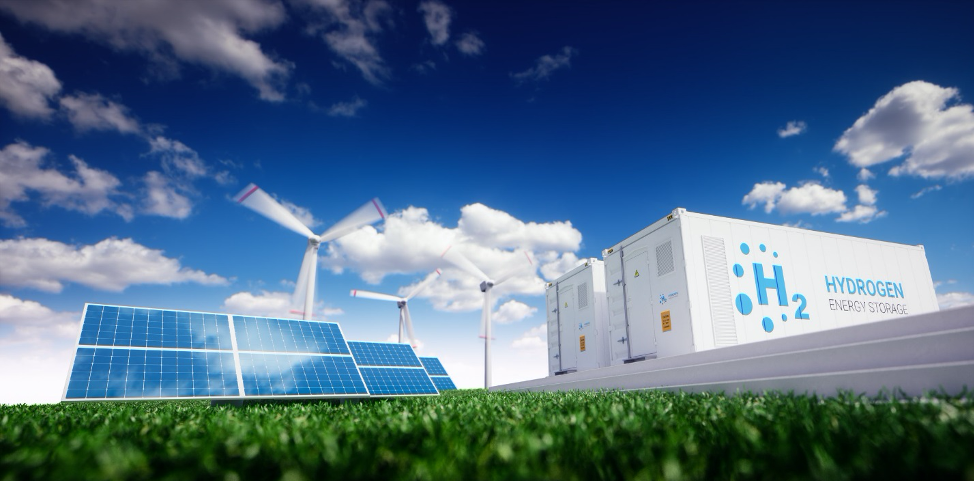
Projects
Some projects we are currently leading to combat real world problems and to help make the world a better place for us all:
Bulk Hand Sanitizer
FDA Certified Hand Sanitizer
When the Coronavirus Pandemic hit our nation, it became clear that basic products such as testing kits, medicines, masks and sanitizers were in severe short supply across the country. True to our mission at GII, we made a quick decision to be part of the solution and do our part. We immediately decided to re-purpose our Galva Plant to produce ethanol based sanitizers on a large scale so we can make it available across the United States at an affordable price. U.S. Rep. LaHood and IL State Senate Chuck Weaver worked with the Trump Administration and the Alcohol and Tobacco Tax and Trade Bureau (TTB) under the Department of the Treasury to expedite our request and get it approved in just a matter of days. This is a wonderful example of government moving quickly to help the private sector move forward with solutions to solving hand sanitizer supply shortages. We thank Late Mr. Ray Defenbaugh, the founding member and chairman of Big River Resources, LLC., Mr. Jim Leiting, CEO of Big River Resources LLC and their entire BRR team. We are grateful for their support, and look forward to do our part as we all are in it together in these tough times.
Desalination of ocean water
Water is essential to life, yet 785 million people in the world - 1 in 9 - lack access to it. According to a report by the World Economic Forum, the water crisis is the #4 global risk in terms of impact to society.
More than six times the population of the United States lives without a household water connection. These people, in particular women and children, must spend time to get water instead of working or going to school or caring for their families.
Today there are two main types of desalination technologies – membrane (RO) and thermal (MED, MVC and MSF) desalination. Reverse Osmosis (RO) desalination uses the principle of osmosis to remove salt and other impurities, by transferring water through a series of semi-permeable membranes. Thermal desalination uses heat, often waste heat from power plants or refineries to evaporate and condense water to purify it. Both of these technologies were developed 50 years ago. Although they have made an impact in providing clean water to the world there are still large portions of the world which cannot afford the costs of these technologies.
GII’s initiative is to develop a breakthrough technology for seawater desalination at 1/10th the cost of these two technologies so most of the world citizens can access and afford clean drinking water.
Hydrogen Storage
Solar energy is a kind of an unreliable energy source as its dependent on time and the geographical distribution. Thus storage and transportation of solar energy is crucial. An ideal way of doing this is to storage electricity from solar in form of hydrogen which obtained by electrolyzing water. Hydrogen is an energy carrier in a carbon-free, natural cycle. Hydrogen is a fuel which can be transported over long distances and stored so that energy from solar can be transported from solar rich area over long distances in pipelines, stored underground or in containers and used in gaseous or liquid form in industry, households, power stations, motor cars and aviation.
Global Impact Innovation is exploring hydrogen storage in novel chemical hydrides which can be transported in large shipments in liquid form, enabling us to transport solar energy globally, freeing the world from fossil fuels.
OMEGA-3: LPC-DHA and LPC-EPA
Alzheimer's disease is a progressive disorder that causes brain cells to waste away (degenerate) and die. Alzheimer's disease is the most common cause of dementia — a continuous decline in thinking, behavioral and social skills that disrupts a person's ability to function independently.
The early signs of the disease may be forgetting recent events or conversations. As the disease progresses, a person with Alzheimer's disease will develop severe memory impairment and lose the ability to carry out everyday tasks.
Current Alzheimer's disease medications may temporarily improve symptoms or slow the rate of decline. These treatments can sometimes help people with Alzheimer's disease maximize function and maintain independence for a time. Different programs and services can help support people with Alzheimer's disease and their caregivers.
There is no treatment that cures Alzheimer's disease or alters the disease process in the brain. In advanced stages of the disease, complications from severe loss of brain function — such as dehydration, malnutrition or infection — result in death.
In collaboration with the University of Illinois Medical School, Global Impact Innovation is in the process of developing novel molecules such as OMEGA-3: LPC-DHA and LPC-EPA, which allow DHA and EPA to be transported across the blood-brain barrier, thus providing a breakthrough treatment for Alzheimer’s.




